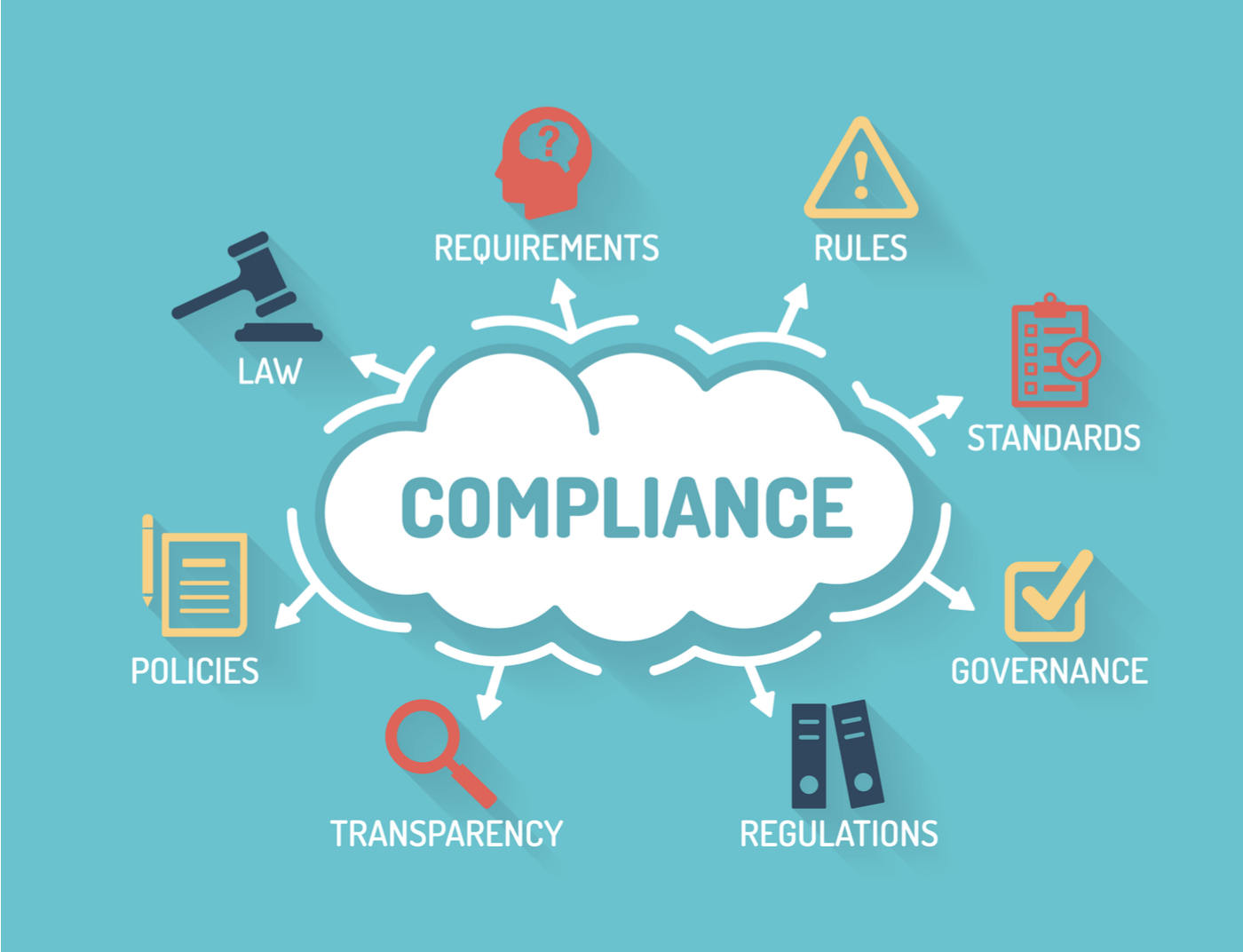Staffing Compliance Digest | February 2019

Welcome to the Staffing Compliance Digest! This quarterly update contains the latest news about federal and state compliance rules and regulations that are relevant to staffing firms.* If you’re concerned about keeping your company compliant, keep reading or click below to scroll down to an update that’s relevant to your business.
ICYMI: What’s Recently Gone into Effect
- ACA: Repeal of Individual Mandate Takes Effect [Effective January 1, 2019]
- New Forms: Oregon Employee’s Withholding Allowance Certificate | Form OR-W-4 [Effective January 1, 2019]
- New Forms: Idaho Employee’s Withholding Allowance Certificate | Form ID W-4 [Effective January 1, 2019]
- Inquiry Bans: California’s Salary History Inquiry Ban is Clarified with Assembly Bill 2282 [Effective January 1, 2019]
- Inquiry Bans: Connecticut Bans Salary History Inquiries with Public Act No. 18-8 [Effective January 1, 2019]
- Inquiry Bans: Hawaii’s Salary History and Wage Disclosure Law Enacted with Senate Bill 2351 [Effective January 1, 2019]
- FMLA: Washington Can Begin Collecting Employee Contributions for Paid Family Leave Law Under Senate Bill 5975C [Effective January 1, 2019]
- FMLA: Rhode Island Grace Period for Paid Sick Leave Omissions Ends [Effective January 1, 2019]
- FMLA: New York Paid Family Leave Benefits [Effective January 1, 2019]
- New Tool: U.S. Department of Labor Releases a New Resource to Assist with Compliance [As of February 6, 2019]
Coming Soon: What to Prepare for in the Coming Months
- New Law: Ohio Franchisor Protection Law Set to Take Effect | House Bill 494 [Effective March 20, 2019]
- New Law: Michigan’s Paid Medical Leave Law | Public Act 369 [Effective March 29, 2019]
- Deadline: EEO-1 Reports [Due March 31, 2019]
- New Protections: Consumer Financial Protection Bureau Rules for Prepaid Accounts [Effective April 1, 2019]
In Case You Missed It:
What’s Recently Gone into Effect
ACA: Repeal of Individual Mandate Takes Effect [Effective January 1, 2019]
“As has been widely reported, both houses of Congress have now voted to repeal the Affordable Care Act’s (ACA) individual shared responsibility penalty, effective for 2019, as part of the 2017 tax reconciliation act.” READ MORE
“The Tax Cuts and Jobs Act (TCJA) made changes to the federal tax code that directly impact how withholding allowances are calculated. As a result of these changes, use of federal Form W-4 to calculate Oregon withholding allowances may no longer result in adequate withholding for Oregon personal income taxes. We’ve created Form OR-W-4, Oregon Employee’s Withholding Allowance Certificate, for employers to provide to their employees any time the federal Form W-4 is provided. Employees may complete both the federal Form W-4 and the new Oregon Form OR-W-4, and submit both to their employer to ensure adequate allowances are claimed for federal and state purposes.” GET THE FORM
“The Idaho State Tax Commission… released Employee’s Withholding Allowance Certificate, Form ID W-4. Taxpayers must complete the form so that their employer can withhold the correct amount of state individual income tax from their paycheck. Taxpayers must sign the form and give it to their employer. The form includes instructions on completing the form.” GET THE FORM
“Last year, Governor Brown signed legislation to prevent employers from asking about or relying on salary history information when making hiring decisions. That legislation, Assembly Bill 168 from Assemblymember Susan Talamantes Eggman went into effect on Jan. 1, 2018. The bill raised a number of questions among employers, especially regarding key terms that were undefined, vague or unclear. Acknowledging these concerns, Assemblymember Eggman introduced a follow-up measure, Assembly Bill 2282, to define some key phrases and provide further guidance to California employers. Governor Brown recently signed AB 2282 into law, which will go into effect on Jan. 1, 2019.” READ THE BILL
“An Act Concerning Pay Equity (Public Act No. 18-8) prohibits employers and third parties like recruiting firms from asking about a worker’s salary history. Also under the new law, employers can’t forbid workers from discussing their salaries or discipline them for doing so.” READ THE ACT
“On July 5, 2018, Governor David Y. Ige signed Senate Bill 2351 into law, adding Hawaii to the list of jurisdictions generally prohibiting employers from asking applicants about their prior compensation history. As long as employers have at least one employee in the state, they are covered… With the passage of the law, Hawaii also joins the trend of encouraging employee dialogue about wages. The law prevents employers from retaliating against employees who discuss their wages or inquire about wages and also prevents employers from prohibiting wage employee disclosures and discussions.” READ THE BILL
“All Washington employers must provide paid family and medical leave under a bill signed by Gov. Jay Inslee on July 5 [2018]. The new law creates an insurance fund that employers and employees both pay into, with a 0.4 percent payroll tax. Payroll deductions will begin on Jan. 1, 2019, and benefits will become available to employees on Jan. 1, 2020. Washington joins a handful of other states (California, New Jersey, Rhode Island and New York) to have enacted a paid-family-leave law.” READ THE BILL
FMLA: Rhode Island Grace Period for Paid Sick Leave Omissions Ends [Effective January 1, 2019]
“The Rhode Island Department of Labor and Training announced that while enforcement of the new paid sick and safe leave law began as of July 1, 2018, the Department will grant a six-month grace period for unintentional employer omissions. Until January 1, 2019, if the Department finds that an employer has mistakenly denied benefits but has acted in good faith to comply with the paid sick and safe leave law, the agency will ensure that impacted employees are appropriately compensated, and waive the administrative penalties, as long as corrective action is taken to prevent further issues… Rhode Island employers with 18 or more employees are required to provide paid sick and safe leave to their employees. Employers with fewer than 18 employees must provide, at minimum, unpaid sick and safe leave…” READ THE BILL
FMLA: New York Paid Family Leave Benefits [Effective January 1, 2019]
“As of January 1, 2019, the number of weeks eligible employees can take to bond with a new child, care for a family member with a serious health condition, or assist loved ones when a family member is deployed abroad on active military service increased to 10 weeks… The Paid Family Leave wage replacement benefit has also increased. In 2019, employees taking Paid Family Leave will receive 55% of their average weekly wage, up to a cap of 55% of the current Statewide Average Weekly Wage of $1,357.11. The maximum weekly benefit for 2019 is $746.41.” READ MORE
“The U.S. Department of Labor… announced the launch of an enhanced electronic version of the Handy Reference Guide to the Fair Labor Standards Act (FLSA). This new online version of one of the Wage and Hour Division’s (WHD) most popular publications will assist American employers and workers with a simple, easy-to-follow resource that provides basic WHD information, as well as links to other resources.” VIEW THE RESOURCE
Coming Soon:
What to Prepare for in the Coming Months
“The Ohio Senate passed House Bill 494, which would specify that a corporate franchisor is not the employer of a worker at a franchisee when there are disputes over wages, workers’ compensation, unemployment compensation and income taxes.” READ THE BILL
New Law: Michigan’s Paid Medical Leave Law | Public Act 369 [Effective March 29, 2019]
The law applies to employers with 50 or more employees. “The law specifies employees would accrue 1 hour of paid sick leave for every 35 hours worked, up to 40 hours per year. Allows employer to limit accrual to 1 hour per week. An employer is not required to allow an eligible employee to use more than 40 hours of paid sick leave in a single benefit year or to carry over more than 40 hours of time from one benefit year to another.” Learn more about the law and exemptions. READ THE ACT
Deadline: EEO-1 Reports [Due March 31, 2019]
“For over 50 years, by September 30, employers with 100 or more employees and federal contractors with at least 50 employees were required to submit an EEO-1 report to the Equal Employment Opportunity Commission (EEOC). The EEO-1 report provides the EEOC with data about the size, location, and race and gender demographics of an employer’s workforce. In 2017, due to proposed changes that would have required employers to also provide information on employee compensation and hours worked, the filing deadline for 2017 EEO-1 reports was changed to March 31, 2018. Although those changes were later withdrawn by the Office of Management and Budget, the new filing deadline stayed in place… it is important to note that March 31 continues to be the annual deadline.” MORE FROM THE EEOC
If you use a paycard system to pay workers, be aware of these new protections. “The CFPB’s new rule on prepaid accounts creates comprehensive consumer protections for prepaid accounts. With our new rule you will get clear, upfront information about prepaid account fees so you can know before you owe and shop for the best deal. The rule also creates a number of new legal rights for prepaid account users, including protections in case of errors, loss, or theft. The new consumer protections and disclosures described in the above video will take effect on April 1, 2019.” WATCH VIDEO
We hope you found this information helpful! Subscribe to the Staffing Compliance Digest for more relevant news and updates.

*Proprietary Notice and Disclaimer
© 2019 Bullhorn, Inc. All Rights Reserved.
Bullhorn provides the information in this Digest “as is” without any kind of warranty. Bullhorn expressly disclaims any and all warranties, whether express or implied, as to the accuracy, integrity, and quality of the information to the maximum extent permitted by law.
Please view the information contained in this digest as informational only. It’s not legal advice and you shouldn’t rely on it for compliance purposes. Bullhorn doesn’t offer any advice, explanation, opinion, or recommendation about you or your company’s specific legal situation or compliance or any possible legal rights, remedies, defenses, options, or strategies applicable to you or your business. We strongly recommend you review your local, state, and federal laws, and consult with your legal counsel regarding compliance-related content included in this digest. We believe the information contained in this digest is accurate as of the publish date and Bullhorn doesn’t have an obligation to update the information.



